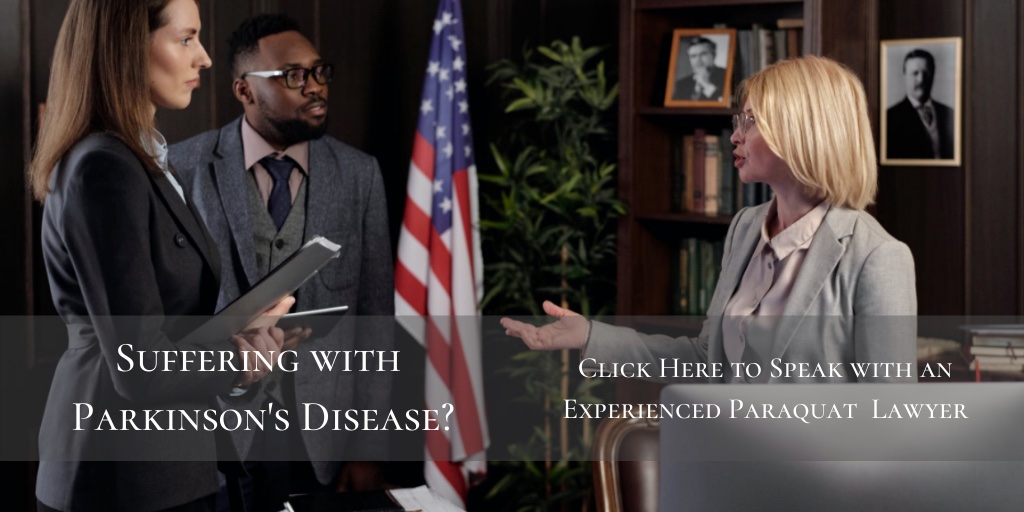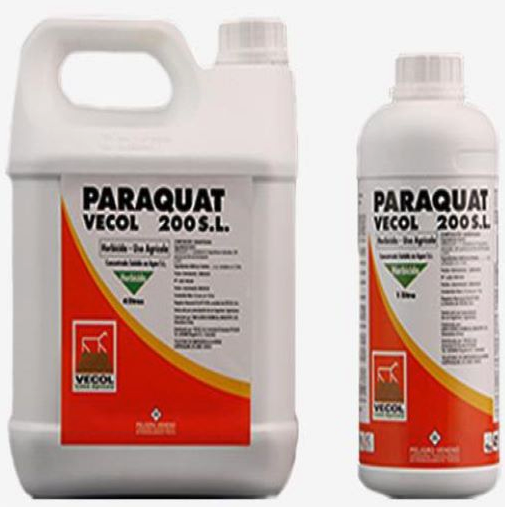Paraquat is an acutely toxic chemical used widely in the United States as an herbicide (weed and plant killer). First produced for commercial use in 1961, Paraquat has risen in commercial popularity to become one of the most commonly used herbicides in agriculture. In the United States, the use of Paraquat is restricted by the U.S. Environmental Protection Agency (EPA) to commercially licensed users. These users must receive specialized training and utilize extra safety measures to limit their exposure to Paraquat during application.
Exposure to Paraquat can result in serious injury or death. If a large quantity of Paraquat is ingested (swallowed), a person is likely to be in immediate serious pain from swelling in the mouth and throat. Next, Paraquat will move on to the digestive tract where it will induce substantial abdominal pain as well as nausea, vomiting, and diarrhea. Depending upon the amount ingested, the unfortunate sufferer’s condition could worsen to heart, liver, and kidney failure as well as lung scarring. People who ingest large amounts of Paraquat are unlikely to survive the experience.
In 2011, the U.S. National Institutes of Health (NIH) published a joint research study with the Parkinson’s Institute and Clinical Center which showed a link between exposure to Paraquat and increased risk of developing Parkinson’s Disease (Parkinson’s). Early in 2021, plaintiffs alleging that their Parkinson’s is linked with their exposure to Paraquat filed the first lawsuits naming Paraquat’s manufacturer Syngenta. These lawsuits have now been consolidated into multidistrict litigation (MDL-3004) taking place in a federal court in Southern Illinois.
“Paraquat Background and History
Paraquat was first developed in a laboratory in 1882 and later fashioned into a broad-spectrum herbicide by the Imperial Chemical Industries company in the United Kingdom. Today, Paraquat is most widely manufactured by Syngenta, a global agribusiness chemical firm headquartered in Basel, Switzerland. Syngenta is itself a subsidiary of ChemChina, a firm owned by the government of the People’s Republic of China.
According to the EPA, Paraquat is one of the most widely used herbicides in the United States and over 100 other countries. It is a “non-selective” herbicide meaning that it kills a broad range of weeds. The agricultural sector uses Paraquat frequently on crops such as:
- Bananas
- Cocoa
- Coffee
- Cotton
- Palm Oil
- Pineapple
- Rubber
- Sugar Cane
There are several formulations of Paraquat which rely on different concentrations of the main active ingredient. However, in any form, Paraquat is highly toxic and requires extra protective equipment for the application, mixing, and loading. In the United States, the EPA also requires applicators to have specialized certifications and training. These certified professionals must wear specialized equipment while using Paraquat, such as chemical resistant gloves, respiratory protection devices, and safety glasses with splash guards.
The EPA recommends that Paraquat always be stored securely to prevent access by children or unauthorized persons and to never store Paraquat in or around residential dwellings. Additionally, the EPA clearly states that Paraquat should never be used for home gardening or around schools, parks, golf courses, or playgrounds.

Paraquat Exposure
Paraquat is exceptionally toxic and ingestion of even small amounts can be fatal. There is no known antidote to Paraquat poisoning.
Paraquat exposure typically results from direct ingestion (swallowing). However, Paraquat can also be absorbed through the skin as well. It causes direct damage when in contact with the lining of the mouth, stomach, or intestines. After Paraquat enters the body, it quickly spreads to all areas causing acute toxic reactions everywhere it goes. Areas of particular susceptibility to exposure are the lungs, liver, and kidneys. Ingestion of even a small amount of Paraquat can cause:
- Heart Failure
- Liver Failure
- Kidney Failure
- Lung Scarring
Ingestion of larger amounts of Paraquat can lead to the following symptoms within just a few hours/days:
- Confusion
- Coma
- Fast Heart Rate
- Injury to the Heart
- Muscle Weakness
- Pumonary Edema (Fluid in the Legs)
- Respiratory (breathing) Failure
- Seizures
If a person ingests Paraquat and survives, they will likely suffer long-term health issues related to liver, kidney, heart, and lung function as well as scarring of the esophagus.
Treatment for Paraquat Exposure
Following Ingestion
In a hospital setting, patients are typically induced to vomit or expel any remaining herbicide in their digestive system with activated charcoal or Fuller’s earth. This is then followed by intravenous fluids and medications to manage blood pressure. Depending upon the level of exposure, some patients may require ventilators to aid with breathing and possibly dialysis to augment kidney function.
Exposure on the Clothes or Body
Individuals who believe that they have been exposed to Paraquat on their clothes or anywhere on their skin should immediately remove their clothing, wash thoroughly with soap and water and obtain medical care as soon as possible.
Parkinson’s Disease and Paraquat
Parkinson’s Disease is a chronic/progressive neurological illness that affects the flow of messages between the brain and muscle groups throughout the body. It is understood that Parkinson’s begins with a loss of specialized nerve cells that produce a chemical called dopamine. Dopamine is a neurochemical that is critical in the transmission of messages from the brain. In the absence of dopamine, the brain has increasing difficulty controlling the actions of the body’s muscles leading to impaired movement, tremors, and other symptoms.
Doctors and researchers do not know what causes Parkinson’s. However, they do suspect that genetic factors, as well as environmental toxicity, may play a factor in whether someone develops Parkinson’s. In particular, researchers point to exposure to certain toxic substances in the environment such as farming chemicals like herbicides and pesticides, as potential triggers for Parkinson’s.
In 2011, the NIH announced a study that linked the use of Paraquat and Parkinson’s disease. Specifically, the study found that people who used Paraquat developed Parkinson’s approximately 2.5 times more often than those who did not use the chemical. Since that time, additional studies have bolstered the NIH study and many sufferers exposed to Paraquat have started to take action.
Dozens of lawsuits have been filed by Parkinson’s sufferers who have been exposed to Paraquat. Many of these lawsuits have named the manufacturer Syngenta and claim the company failed to warn the public about the risk of Paraquat exposure and Parkinson’s. These lawsuits have been consolidated into multidistrict litigation (MDL-3004) presently before a federal court in the Southern District of Illinois.
Sources Cited (19)
1. “Paraquat Dichloride: One Sip Can Kill.” https://www.epa.gov/sites/production/files/2019-03/documents/paraquat-dichloride-one-sip-can-kill-3-8-19.pdf
2. “Facts About Paraquat” https://emergency.cdc.gov/agent/paraquat/basics/facts.asp
3. “Paraquat Fact Sheet” http://hcphes.hosted.civiclive.com/UserFiles/Servers/Server_72972/File/Fact%20Sheet/Chemical%20Agents//FactSheetParaquat.pdf
4. “Paraquat exposure and Parkinson’s Disease” http://www.pan-germany.org/download/fact_paraquat.pdf
5. “Syngenta: Paraquat” https://www.syngenta.com/en/protecting-crops/products-list/paraquat
6. “NIH study finds two pesticides associated with Parkinson’s disease” https://www.nih.gov/news-events/news-releases/nih-study-finds-two-pesticides-associated-parkinsons-disease
7. “Paraquat Dichloride” https://pubchem.ncbi.nlm.nih.gov/compound/Paraquat-dichloride
8. “Paraquat and Parkinson’s disease: a systematic review protocol according to the OHAT approach for hazard identification” https://www.ncbi.nlm.nih.gov/pmc/articles/PMC5433017/
9. “Medical management of paraquat ingestion” https://www.ncbi.nlm.nih.gov/pmc/articles/PMC3243009/
10. “Paraquat – A deadly poison: Report of a case and review” https://www.ncbi.nlm.nih.gov/pmc/articles/PMC3777374/
11. “Paraquat poisoning. An overview of the current status” https://pubmed.ncbi.nlm.nih.gov/2198050/
12. “Parkinson’s Disease” https://www.mayoclinic.org/diseases-conditions/parkinsons-disease/symptoms-causes/syc-20376055
13. “Parkinson’s Disease Risk Factors and Causes” https://www.hopkinsmedicine.org/health/conditions-and-diseases/parkinsons-disease/parkinsons-disease-risk-factors-and-causes
14. “Parkinson’s Disease Information Page: What research is being done?” https://www.ninds.nih.gov/Disorders/All-Disorders/Parkinsons-Disease-Information-Page
15. “Focus On Parkinson’s Disease Research” https://www.ninds.nih.gov/Current-Research/Focus-Disorders/Parkinsons-Disease
16. “Paraquat Dichloride” https://www.epa.gov/ingredients-used-pesticide-products/paraquat-dichloride
17. “Paraquat Dichloride Training for Certified Applicators” https://www.epa.gov/pesticide-worker-safety/paraquat-dichloride-training-certified-applicators
18. “Southern District of Illinois Is Site for MDL in Cases Linking Herbicide Paraquat to Parkinson’s” https://www.law.com/nationallawjournal/2021/06/08/southern-district-of-illinois-is-site-for-mdl-in-cases-linking-herbicide-paraquat-to-parkinsons/
19. “IN RE: PARAQUAT PRODUCTS LIABILITY LITIGATION” https://www.jpml.uscourts.gov/sites/jpml/files/MDL-3004-Transfer%20Order-05-21.pdf

